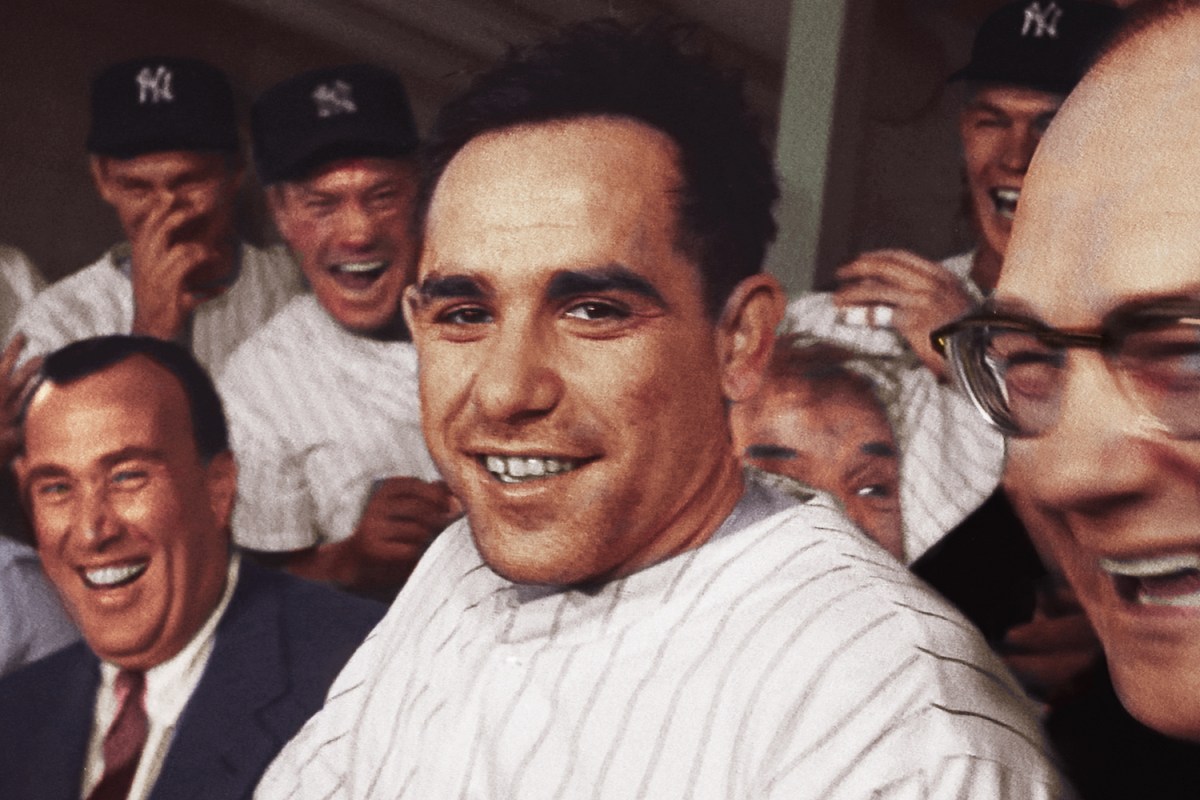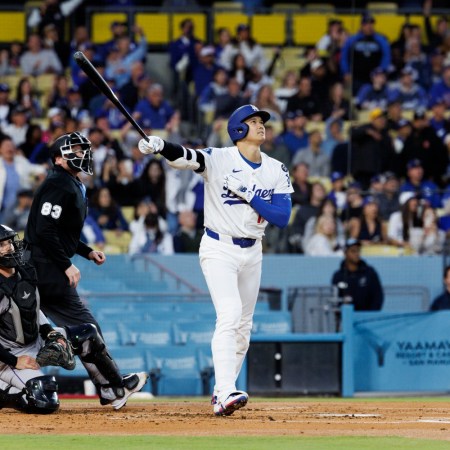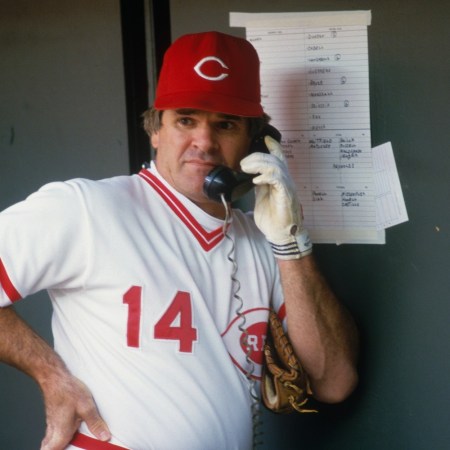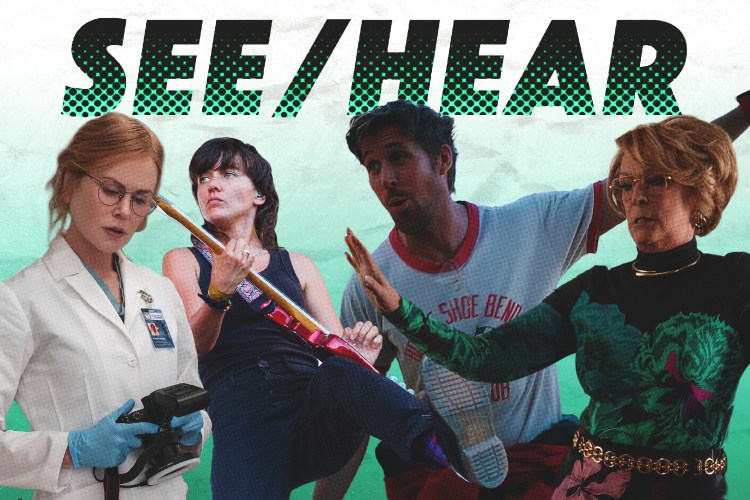It’s July 14, 2015, and the MLB All-Star Game is on TV. Lindsay Berra, watching alongside her grandfather, Yogi, is pissed. In the run up to the Midsummer Classic that year, the league had created a fan voting platform to determine the four greatest living baseball players. During the opening ceremony before the game, the winners emerge from the Cincinnati Reds’ dugout: Hank Aaron, Sandy Koufax, Willie Mays and Johnny Bench.
Lindsay turns to her “Grandpa Yogi” and asks, “Are you dead?”
In typical Yogi fashion, he wryly says, “Not yet.”
Remembering the Pandemic That Nearly Killed Babe Ruth
What the sports world can learn from the 1918 Spanish Flu epidemicYogi Berra certainly had the playing résumé to be included among the four. As a member of the New York Yankees, he won 10 World Series championships — more than anyone else in history — and was named the American League’s Most Valuable Player three times. He was an 18-time All Star and inducted into the National Baseball Hall of Fame during his first year on the ballot. After his playing days, he became an accomplished MLB manager with multiple franchises, and there’s a museum and learning center where kids are tutored on the game of baseball.
Still, for all the accolades he received during his life and since his passing a few months after that All Star Game snub, Yogi Berra is arguably under-appreciated. Or, as a new feature length documentary film repeatedly puts it, he may be the most “overlooked” MLB superstar of all time. (By the way, those 10 World Series rings are two more than the amount those other four guys who were honored in 2015 have combined.)
Directed by Sean Mullin and distributed by Sony Pictures Classics, It Ain’t Over puts the life and legacy of Yogi Berra into complete focus. It hits theaters May 12, and InsideHook caught up with Mullin and Lindsay Berra, who served as executive producer on the film, to discuss the inspiration behind it and why Yogi Berra deserves greater recognition. See the movie and you’ll be convinced. After all, as Yogi said, “You can observe a lot just by watching.”
*This interview has been edited for context.
InsideHook: Lindsay, why was it so important to have your grandfather’s story told in this way?
Lindsay Berra: It really wasn’t my idea to tell this story; it was my producer, Peter Sobiloff, who, after seeing the Mister Rogers documentary wanted to know why there wasn’t one about my Grandpa Yogi. He was the one who really got the ball rolling, but it was important for me to have people remember that Grandpa is this tremendous baseball player. For most of my life, he was out making commercials and was just this funny little guy saying a lot of funny things. That seems to be what he is best remembered for. However, I really believe he was the greatest catcher of all time and is definitely up there with the top players of any position. I want people to remember both that and also that, as good as he was as a baseball player, he was a better human being. I think both of those things come through in the movie.
IH: I was impressed — I think that’s the right word — with how honest, direct and open you are in the film with your feelings on his legacy. The word “overlooked” is used quite a bit in the movie, by you and others, and you’re not shy about saying he deserves greater recognition.
LB: In addition to everything in the film, I tell people this story from after the movie was made, too. I clicked on this article about Yadier Molina (the longtime catcher of the St. Louis Cardinals) collecting his one-thousandth RBI, and there’s a composite picture of Molina next to Ivan “Pudge” Rodriguez and Johnny Bench under the headline “Yadi Joins Elite Company.” I had another “wait-a-second” moment because Grandpa has 1,430 RBIs, which is the record for catchers. That would’ve been a great thing to include in the movie, to show how he’s been overlooked. With that said, Grandpa (who grew up in St. Louis) was a huge Cardinals fan. He loved Yadier Molina, so this is not a knock on him, but Grandpa really deserves to be in that conversation. No catcher will ever get 1,430 RBIs again. No catcher will do a lot of the things that Grandpa was able to do in his 18-year career in the Big Leagues — and I want people to know that.
Sean Mullin: He caught both ends of a double header 117 times, which is unbelievable. No one will ever do that again.
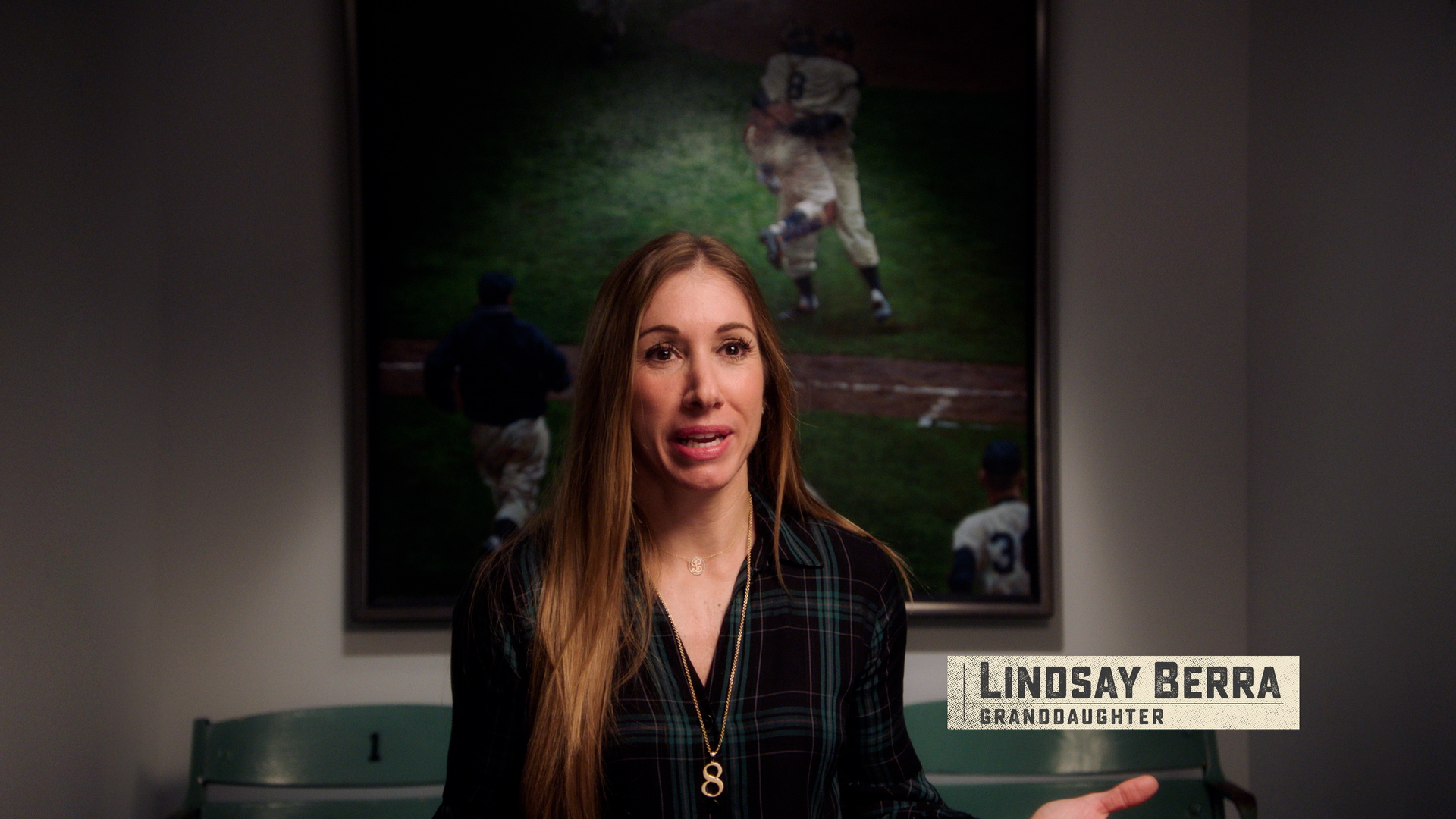
IH: Lindsay, why do you feel like Yogi Berra has been overlooked?
LB: Grandpa played his last baseball game on May 10, 1965, and then for another 45 years, he was making commercials, he was managing — he just had a different role in the press, and that part of his life is what’s most recent in people’s memories. Folks who were able to see him play, we’re losing more and more of them each day, so unless a dad or a grandpa does a really good job of educating a kid about Grandpa’s career with the Yankees, you know him as that funny character. That’s a role he embraced; I don’t want to make it seem like that was a bad thing, but there’s that whole first part of his life where he was this tremendous Yankee, really the guy who made that Yankee machine go for 10 World Series and folks don’t always think of him as that.
IH: What are one or two facts about your grandfather’s life that people who might want to see the movie will be interested to learn?
LB: One of the things that made Grandpa so beloved is there are so many different aspects of his life that people can identify with. It really humanizes him a lot. He was a first-generation Italian immigrant — a lot of us are immigrants and sons and daughters of immigrants. He volunteered to serve his country and ended up off of Omaha Beach during the D-Day invasion, as a machine gunner providing fire for our troops going ashore. So he’s a veteran and many of us are veterans and know and love veterans. He had this beautiful 65-year marriage with my Grammy Carmen; he was a wonderful father and grandfather. Everybody can identify with loving your significant other and the love that a parent has for their children. You’re going to learn a lot about Grandpa as a human being, and you don’t have to be a baseball fan to enjoy that part.
IH: How did MLB assist you with the production of the film?
LB: They gave us all of the archival footage. We couldn’t have made the movie without all of that amazing footage of Grandpa as a player because you need to see what he looked like swinging that big bat that he used and rounding first and diving into second. No one really thought of Grandpa as a fast person, but he actually was a really speedy, incredible, smart, heads-up baserunner, and you see that in the footage.
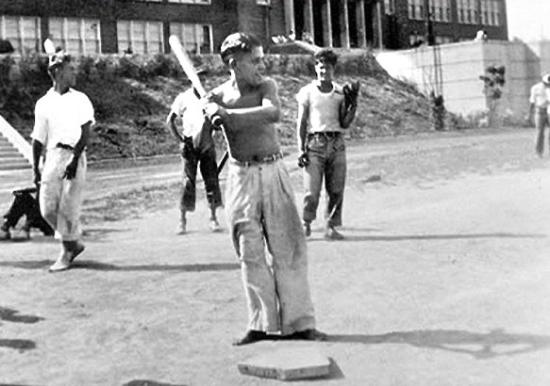
IH: Sean, tell me about some of your previous work, how it brought you to this film and what drew you to the project.
SM: As a storyteller, I’ve always been drawn to films about characters caught between perception and reality. My first film, Amira & Sam, is about an Army veteran who falls in love with an Iraqi refugee in New York City, and that movie challenged some perceptions of veterans and refugees. One of the financiers on that film was Peter Sobiloff, who then brought me in to direct this film about Yogi. But when you talk about perception versus reality, there’s no greater duality than Yogi Berra — the idea of who he was and what people thought he was. I think society’s really not comfortable with someone being both funny and good. You’re either one or the other. Comedies don’t win Oscars; I say that all the time, and it’s true. People were uncomfortable with the fact that Yogi was both the jester and the king, which a lot of people have a hard time wrapping their head around.
I did make a meal of Yogi’s WWII story in the film because I was a first responder at Ground Zero after the September 11th attacks. I spent about nine months at Ground Zero before going off to film school. That impacted my life in a very unique way, and I know such service impacted Yogi’s, so I wanted to make sure we told that story properly.
I never met Yogi, but I feel like I know him. I hope he would have liked me. Lindsay says he would have.
LB: Grandpa, yes, would have loved him, and Sean is not a small person, so he 100% would have called him “Shorty.” [Laughs]
SM: [Laughs] Still, there was just a tremendous weight put on my shoulders, mostly by myself, which I do all the time. But I wanted to make sure I did the right thing and told a story that was true to his legacy — and the best review I got was when I finished the first cut of the film and I showed the film to Lindsay and her father, Larry. I was more nervous at that “premiere” than I was at a Tribeca Film Festival premiere. I sent a link and they said they’d watch it over dinner. I’m standing in my kitchen; I’m pacing. They’re Italian I know dinner can take a while. Are they laughing? Are they crying? Are they stopping the movie? I got a call as soon as the movie ended, and they told me it was a gift to the family. That was all I needed to hear.
IH: As you dove into Yogi’s life story, what was one thing you found fascinating that viewers will want to know more about?
SM: The thing that resonated with me the most was the fact that he had such an incredible relationship with his wife Carm. At the end of the day, really this is a love story. Baseball’s done in the first 30 minutes of this movie. Yogi and Carm continually had each other’s backs for 65 years, through the ups and downs, and we cover that. There are love letters they wrote to each other, and we have clips of Carm reading one and of Lindsay reading another. That was very intentional on my part. I’m a romantic at heart, and I think the one thing that is going to surprise most people is the love story, which is what Billy Crystal texted us about right after he saw the movie. He loved the Yogi-Carm storyline.
IH: During the premiere at the AMC theater, there was a lot made of the fact that this movie will only be shown in theaters and won’t be posted to a streaming service initially. Why is that so important to you?
SM: I’m a big fan of the theatrical experience. Much of my life was spent in the darkness of a movie theater, and that communal aspect is something I love. This film plays to an audience. There’s laughter, there are tears. Sony Pictures Classics got that; they’re the cream of the crop when it comes to independent film distribution, and they typically open films in a handful of theaters in New York and L.A., and they spread it out slowly. With It Ain’t Over, they’re opening it in 100 theaters, which they’ve never done, and week two, instead of going to three to five markets, they’re opening in 15 markets. They’re big believers in the theatrical experience, like I am, and this film deserves, at least in our minds, the theatrical treatment because when you watch it with 200 or 300 people, there’s something that happens. There’s this alchemy, this energy that get created between the audience and this film that is irreplaceable.
The Charge will help you move better, think clearer and stay in the game longer. Subscribe to our wellness newsletter today.
